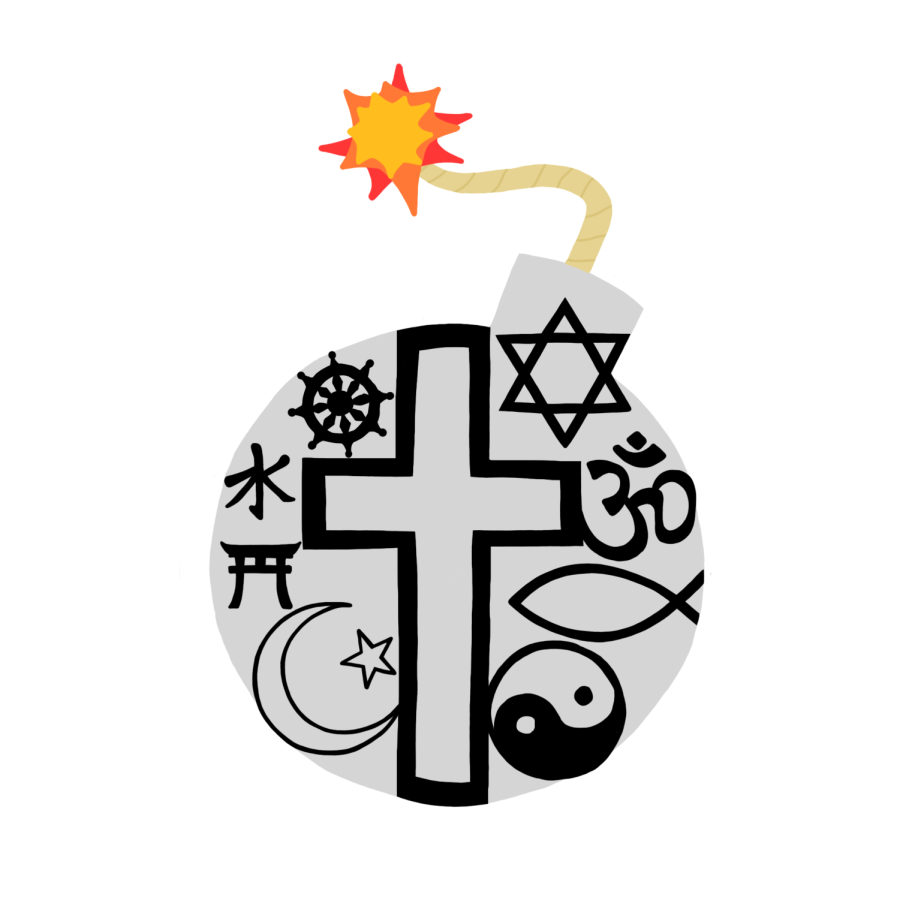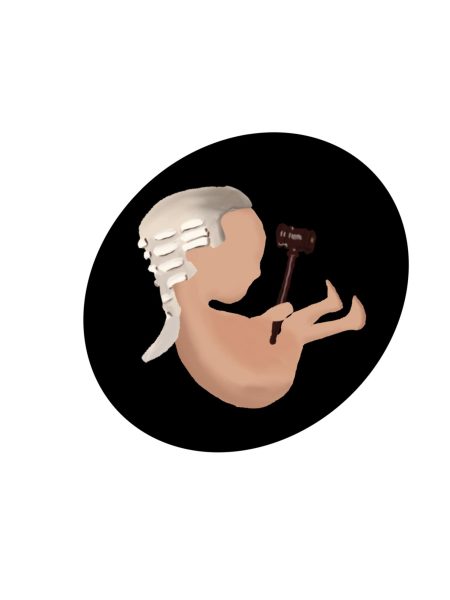Disarming divinity: use religion as a mirror, not a weapon
November 16, 2021
Religion has an omnipotent chokehold on humanity. It proves itself to be, inexplicably, a force unlike any other. A powerful catalyst for society, and consequently, when paired with bigotry, a dangerous one. Countless times throughout human history, behind the scenes of war, conflict, hatred and violence, religion stands strongly as an ill-fated justification. It seems ironic, almost unfair— how can a concept specifically meant to proliferate peace and acceptance be the name in which so much blood is spilled?
It’s a tricky concept. Religion. It is always there, lurking in the background of everything. It is, in essence, a collection of ethical codes — rights and wrongs — a sacred entity meant to keep us morally in check. Yet, it is impossible for people to interpret it universally. Simply put, morality never will be a concept simple enough to be able to be compressed into such black and white terms as “right” and “wrong,” and religion will never be able to simply hand us clear, correct answers as to what others should and should not do with their own lives. Religion is something impressionable; oftentimes it can mean exactly what you want it to mean. This ambiguity makes religion the perfect weapon for people to use it to project their own opinions unto others. It is the ultimate scapegoat; sacred and grave, yet just the right amount blurry and malleable, with its metaphors and meanings lost in translation. It is easy to look within it and find amongst the ambivalent texts, something to work with. A few words that can be molded to reflect your own ideals and then projected onto society as the moral sovereignty, as what must be done, the final eureka— the correct answer. Still, nothing, not even religion, can give us a universal “right” answer.
Consequently, with heated social issues like same-sex marriage and, currently, abortion, religion is there at the forefront of the topic, loud and incomprehensible. It quickly becomes an opportune veil for bigotry. But frankly, that is exactly why separation of church and state is necessary. Something as ambiguous as divinity can never be expected to grab us by the neck and tell us what to do.
So then why is the public instinct—when looking into something so subjective, so personal and reflective—to mold it into a political ploy, as a weapon of “good” to force unto others? All in all, it gives religion a bad name, makes it synonymous with intolerance, when ironically, it is meant to stand for quite the opposite. Rather than being an agent of societal scrutiny, it is time religion is used as a force of self-reflection and self-improvement. One should look into it, at its formless face, and instead of gazing upon intolerance, witness your own beliefs, your rights and your wrongs, how you, personally, can be good. Religion as it was meant to be. Religion when it is no longer a warrant for blood. Religion, not as a weapon, but as a mirror.












